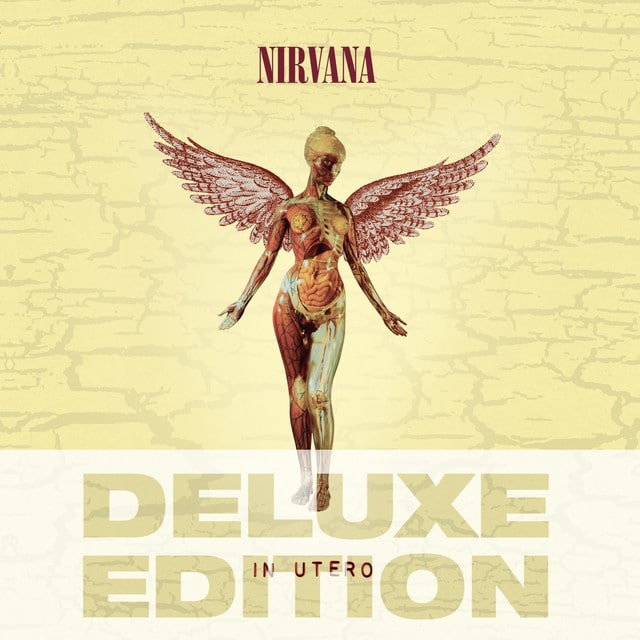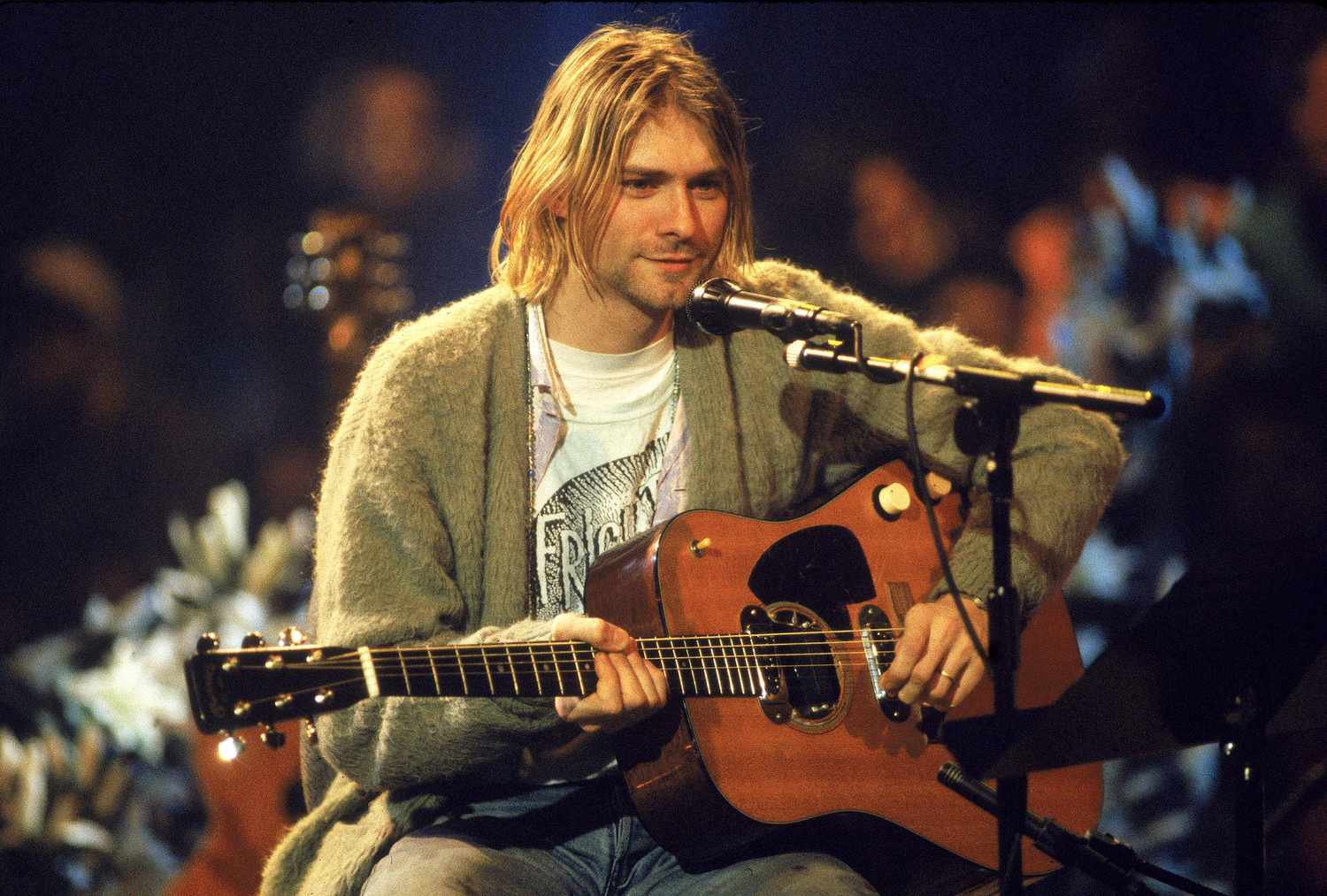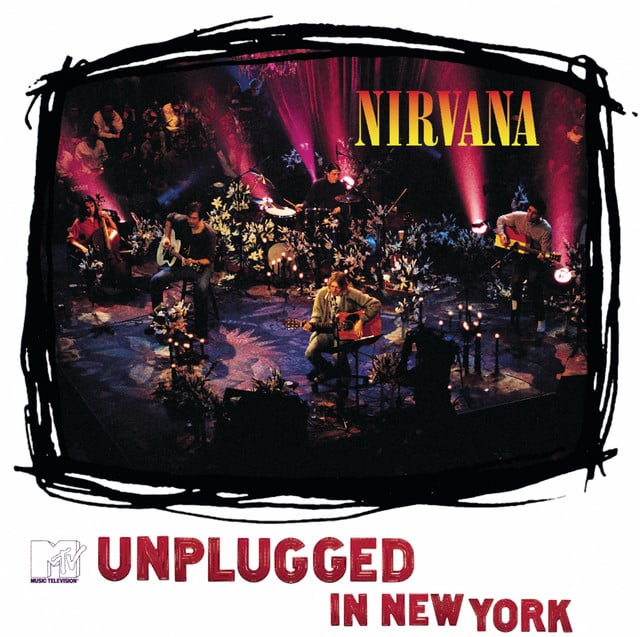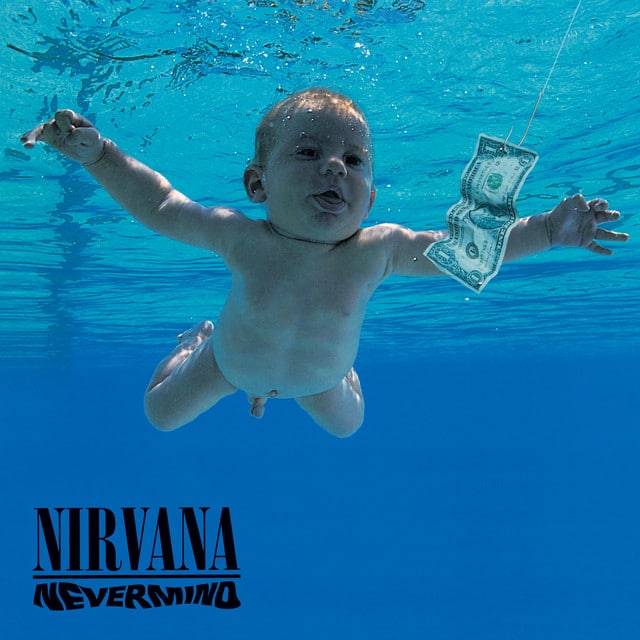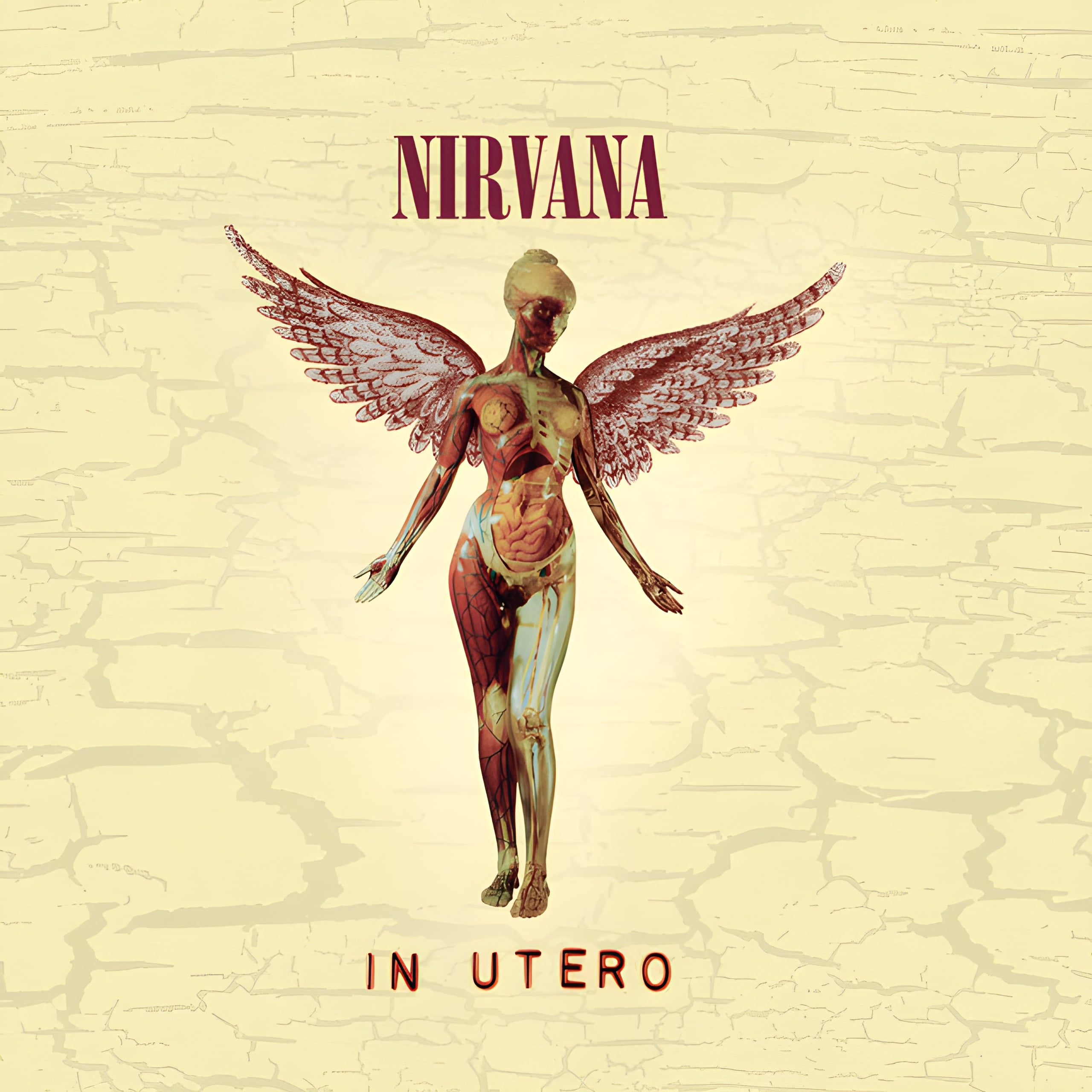Released: 1993
“Heart-Shaped Box” by Nirvana is a grunge anthem that encapsulates the band’s knack for raw, emotive lyricism intertwined with the rough edges of rock. Steeped in metaphors and Kurt Cobain’s distinctive writing style, the song tackles themes of entrapment, disease, and a search for redemption or escape from a toxic relationship. It’s a powerful expression of vulnerability, resentment, and the complexities of human relationships, all packaged in the band’s signature loud-quiet-loud dynamic.
Opening with “She eyes me like a Pisces when I am weak,” Cobain dives headfirst into the ocean of emotional vulnerability and astrological reference, suggesting a level of understanding and manipulation by the other party when he’s most vulnerable. The mention of being “locked inside your heart-shaped box for weeks” uses vivid imagery to depict a feeling of being trapped or confined within the complexities of someone else’s emotions or possibly a romantic relationship that feels both sacred and imprisoning.
The chorus, “Hey! Wait! I’ve got a new complaint, forever in debt to your priceless advice,” is a raw outcry against the confines of the relationship, packed with sarcasm. Cobain mocks the idea of being eternally grateful for wisdom or guidance offered by the other person that feels more like a burden than help. It’s a powerful juxtaposition of seeking help and feeling trapped by it.
The second verse introduces more abstract imagery with “meat-eating orchids forgive no one just yet” and “cut myself on angel hair and baby’s breath.” These lines continue to play with themes of beauty intertwined with pain and danger. Orchids, typically symbols of beauty and refinement, becoming carnivorous, suggest a betrayal of expectations, while “angel hair and baby’s breath,” both delicate and beautiful, become sources of harm. “Broken hymen of Your Highness, I’m left black” could symbolize a loss of innocence or purity in a relationship that has turned dark and hurtful.
“Throw down your umbilical noose so I can climb right back” is perhaps one of the most striking lines in the song, blending the imagery of birth (an umbilical cord) with that of death (a noose). It suggests a toxic cycle of dependency and rebirth in the relationship, where Cobain finds himself continually drawn back into this destructive dynamic.
As the song circles back to its beginning in the final verses, it reinforces the cyclical nature of the emotional turmoil Cobain describes. The persistence of his “new complaint” in the face of being “forever in debt to your priceless advice” suggests a struggle to break free from the cycle of dependency and emotional manipulation that the relationship represents. It’s a powerful, anguished plea for release, wrapped in the complex, evocative imagery that defined Kurt Cobain’s songwriting legacy.
Overall, “Heart-Shaped Box” serves as an emblem of Nirvana’s ability to weave deep, personal emotion into the fabric of rock music. It stands not just as a testament to Cobain’s songwriting prowess but as a beacon for anyone who’s felt trapped in the dark confines of a relationship, searching for a light to guide them back.
